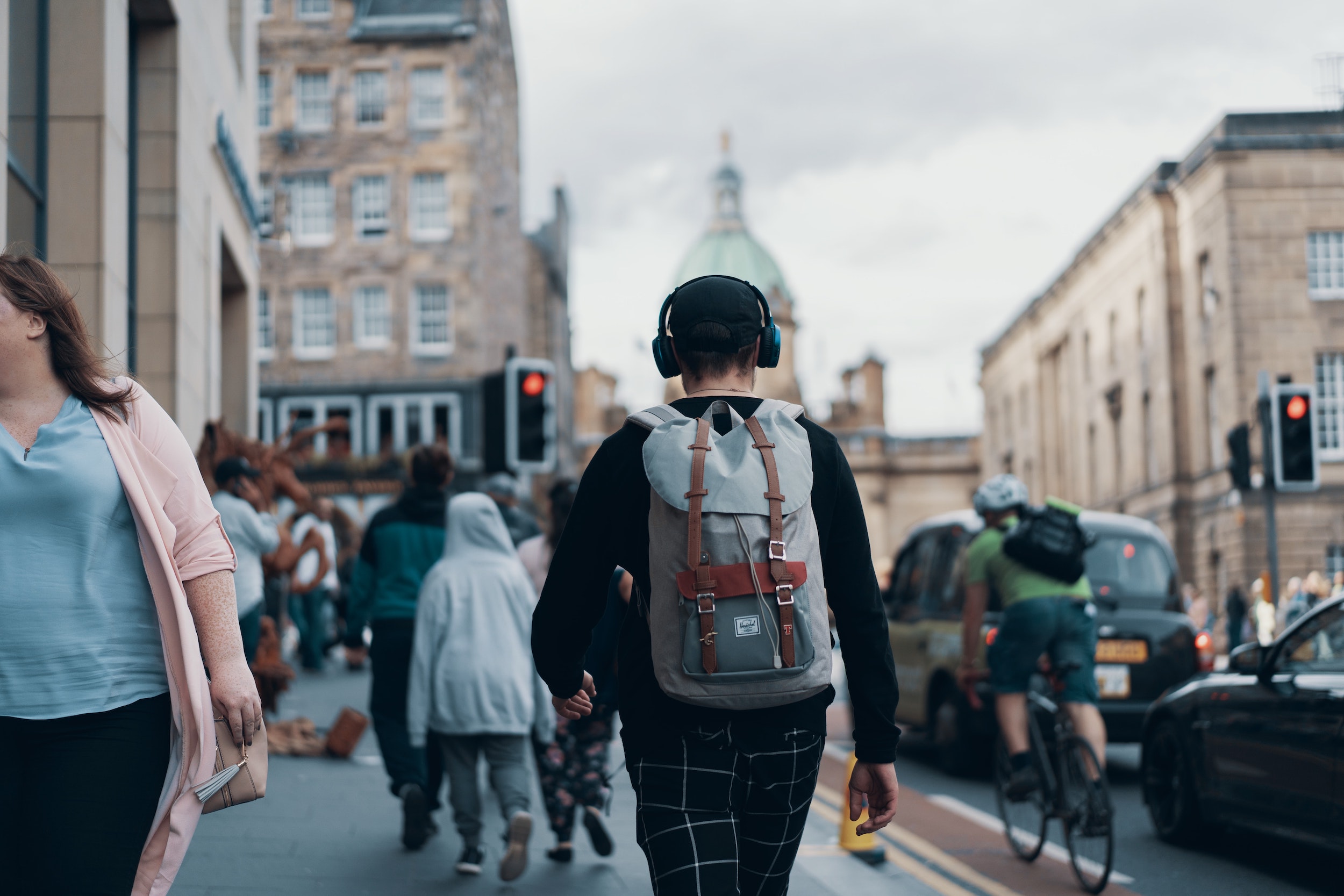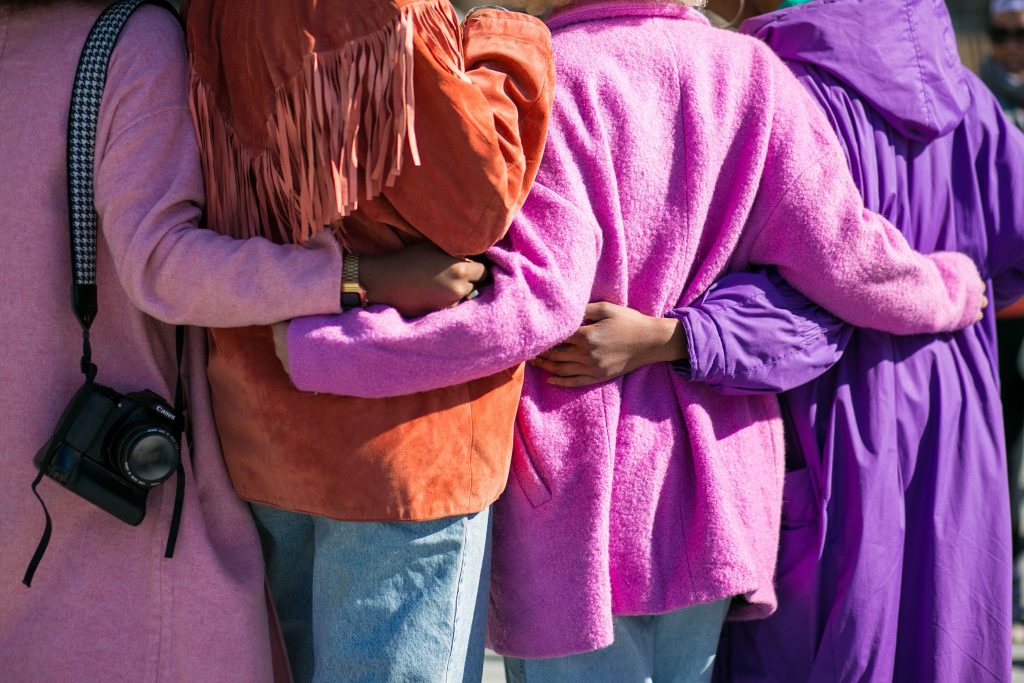Togetherall works in partnership with Local Authorities in Scotland

November 15 2021
Togetherall has been actively involved in supporting the mental health of the population in Scotland since 2013, with its first partner – The University of Edinburgh.
Since then, 75% of Scottish universities and colleges have introduced access to the Togetherall community, to provide their students and staff an instant and anonymous source of support.
However, the real desire and commitment by authorities in Scotland to find ways to reach and support more people’s mental health, alongside the grant of additional funding, ensured local councils could invest in Togetherall, to support an even greater number of people.
So far, Togetherall has been made available to over 800,000 people in Scotland, and it’s currently working with a third of Scottish local authorities, including Scottish Borders Council, Aberdeenshire Council and Glasgow City Council.
Glasgow City Council’s Educational Psychological Services was the first authority to extend support for their 16- to 18-year-old residents in Glasgow. They were looking at commissioning Togetherall before the pandemic, to introduce a digital solution to their array of services, but COVID-19 expedited the rollout.
The challenges faced
The COVID-19 pandemic, and the resulting economic recession, have negatively affected many people’s mental health and created new barriers for people already suffering from mental illness.
Some of the adverse effects have already been reported by Mental Health Foundation Scotland, who conducted one of the first studies to systematically track people’s mental health during the pandemic. Their findings show that year-on-year 2020-21 a:
- 18% increase in loneliness
- 15% increase in feelings of hopelessness
- 3% increase in suicide ideation
Feelings such as loneliness and hopelessness can potentially lead to more serious mental health conditions including, anxiety, depression and psychosis. Without the correct interventions, these conditions can have a negative effect over time and in the past decade, have become interconnected with a rise in poverty and homelessness.
Young adults, students, single parents, and people who are unemployed are particularly impacted, and this has led Scottish authorities and educational departments to think beyond traditional healthcare provisions.
How digital became a focus in Scotland
The need to reduce the demand on face-to-face mental health support is partly behind a shift towards greater use of digital solutions. Authorities have been looking to fill a gap in provision where face-to-face support may be challenging due to either difficulties in attending appointments or fear of stigma. Central to this was finding a service people could trust.
Through Togetherall, the anonymised member usage data has enabled our service to understand that feeling lonely or hopeless does not always mean the person requires treatment. In fact, just having someone else to share thoughts and feelings with, can help to prevent an exacerbation of difficult feelings.
“I found it almost impossible to discuss my mental health with my parents. I was frightened of talking about it to my friends. Being able to talk online about that with other people was really useful.”
– Togetherall Member
Despite not being a crisis service, Togetherall still engages between 1 to 2 people a day assessed to be ‘in crisis’ and has a robust response process in place. Glasgow City Principal Psychologist Barry Syme told Glasgow Evening Times:
“Togetherall is a very interesting example because there was one incident where a young person had posted on the wall that they had a suicide plan and fortunately the clinical supervision picked this up and intervened.”
(May 2021)
Link in a wider chain
Most of Togetherall’s partnerships in Scotland are funded through the Educational Psychological Services teams, employed directly by local authorities. Their role involves providing consultation and advice for parents, carers, children’s service colleagues, health professionals and relevant others, and assisting in meeting the needs of children and young people aged 0-25 years.
By connecting different services and providing an umbrella of support for everyone, there is a real desire and commitment by all Scottish authorities to find new ways to reach and support people’s mental health in conjunction with face-to-face models.
A good example of this integration in action is Aberdeenshire and Clackmannanshire councils.
In Aberdeenshire, where Togetherall is supporting all residents aged 16+, the funding for Togetherall comes from the Scottish Government Community Mental Health and Wellbeing Services grant.
“The online tools now accessible in Aberdeenshire via Togetherall mean that people can check in on their mental health and wellbeing, at a time that suits them and from a place of comfort. Being able to access face-to-face support is also very important for some people, but for many using these anonymous, online solutions can be an important first step in opening up and sometimes prevent the need for more complex support further down the line.”
– Carron Douglas, Principal Educational Psychologist, Aberdeenshire Council.
For the council, having a variety of tools to support people’s mental health has meant that individuals could access support in a way that suited them, depending on their unique journey and circumstances, and the level of support they required.
Clackmannanshire Council commissioned Togetherall jointly for their 16- to 25-year-old population, to ensure a continuum of mental health supports across the council that could meet a range of needs in a variety of ways.
“We want our children and young people to get the right help, at the right time, in the right place. Our digital services such as Togetherall, ensure we can offer universal access across all age ranges, with our face-to-face services providing more targeted support.”
– Lesley Taylor, Depute Principal Educational Psychologist, Clackmannanshire Council.
Through combining digital and face-to-face services, Clackmannanshire has seized the opportunity to provide a personalised and progressive choice that supports children and young people, while tailoring their package of support to best meet their own individual needs.
The impact so far
The benefits of having a digital mental health support service working in conjunction with other services has been significant:
- 800,000+ people in Scotland now have access to Togetherall via local authorities, universities, colleges, employers and the Armed Forces.
- 65% accessed the service out of hours (i.e., after 5pm and before 9am Mon-Fri.)
- Supported over 23,000 residents living in Scotland
- 35% of Togetherall members in Scotland identify as coming from a black, Asian or other ethnic minority background.
- 70% of members report improvements with one or more issues that led them to join
- Supporting 1/3 Local Authorities/ Educational Psychological Services
- Available to almost 300,000 students in Scotland
“Over the course of my conversations with local authorities in Scotland, one of the key questions that arises is how they can help support their different populations. Togetherall, being a digital tool accessible at any time and in any place, has allowed to connect different part of the country, whether is someone living in Glasgow or a resident of the Orkney Islands.”
– Roisín Lynch, Senior Account Manager, Togetherall.
South Ayrshire Council commissioned Togetherall for all 16–25-year-olds at the beginning of 2020. So far, they found the strength of Togetherall’s online platform lies in allowing individuals to explore the content at their own pace and time.
“Togetherall is a great resource to access at any time of the day and with total anonymity. Online support is not for everyone, but it’s an option in an era of choice to deliver the right support, to the right person at the right time. Individuals can use Togetherall as a steppingstone to guide them in the right direction and make their own informed choices, benefitting from a community of support.
– Jennifer Corcoran, Change Coordinator for Mental Health Psychological Services, South Ayrshire Council.
What’s next?
When it comes to mental health, a one-size-fits-all model is not a solution, and while digital services are not a replacement for one-to-one therapy (whether delivered in-person or online), having a range of options can suit specific needs of individuals and help reach every part of the community.
Togetherall combines a community model with clinical rigour. It’s a safe way to provide a route of support to as many people as possible from all ages and walks of life. Almost 50,000 members on Togetherall are over the age of 45, proving the fact that digital services are not just used by young people.
Accessing to a safe support community is also vital, whether as a first or additional measure to help combat mental ill-health.
Nearly two thirds of members register and access Togetherall out of traditional working hours and our service signposts members onto other services available locally. We believe firmly in the power of community to support people, whatever their level of wellbeing needs, as a tool alongside other forms of care.
As Togetherall continue to support more people in Scotland and across the country to reach an even wider population, we hope, by providing choice and different roots of access, more people can take the first step to get the support they need.
Find out more
With 1 in 4 people in Scotland struggling with their mental health and the numbers rising among young people, providing support requires a scalable and preventative approach. If you are interested in a safe, clinically managed online support community, click the button below.








